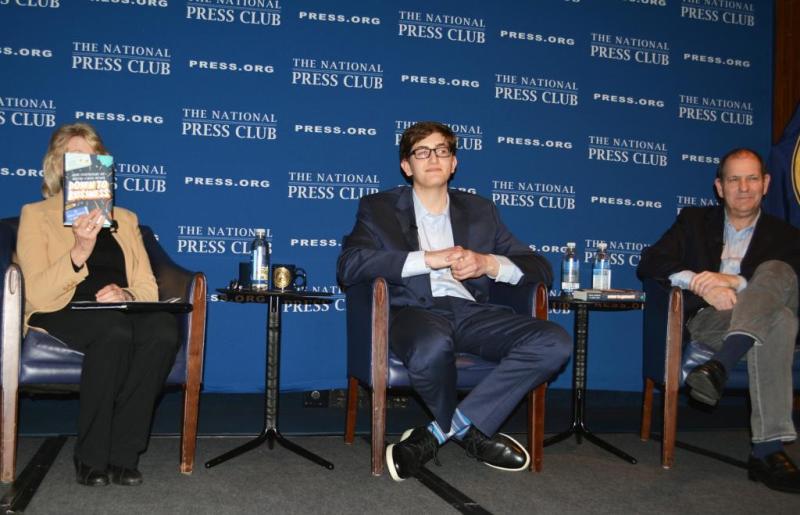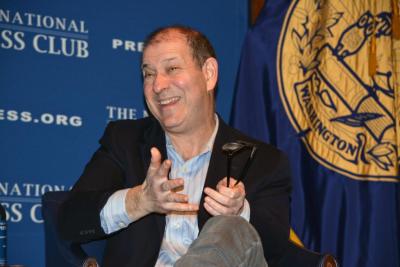
The key to being an entrepreneur at any age is measuring your value “not by how busy you are, but what you do with your time.” That's the message from the 16-year-old co-author of a book of wisdom from industry leaders advising young entrepreneurs and a veteran public radio executive.
Teen entrepreneur Fenley Scurlock, co-author of just-published book "Down to Business: 51 Industry Leaders Share Practical Advice on How to Become a Young Entrepreneur," and former National Public Radio CEO Ken Stern told the audience at a National Press Club Headliners book event in the NPC Ballroom on March 6 about seizing the moment. For Scurlock, the moment was the COVID-19 pandemic.
Much of the book was written during the COVID-19 pandemic lockdown and social isolation period. Scurlock and co-author Jason Liaw were 12- to 13-year-olds at the time. They started reaching out to business leaders for their advice on being successful in business endeavors.
The result is a compilation of stories and wisdom of 51 entrepreneurs across a wide range of ages, demographics and focus. The book aims to help entrepreneurs of all ages, but especially young people, understand both the practical and personal steps one can take toward achieving entrepreneurial success.
Scurlock, a Congressional Award recipient, recognizing youths for notable contributions in areas including voluntary public service and personal development, spoke about what he has learned from personal experience about entrepreneurial excellence. His collaborator and co-author Liaw, in an ironic twist, had to miss the event because he came down with COVID-19.
Both Scurlock and Liaw had started businesses by the time they started middle school.
“My primary piece of advice for young entrepreneurs is to start early,” Scurlock said. “Every young entrepreneur we spoke to wished they had started earlier. The earlier you start, the earlier you develop these skills, and they’re important even if you don’t end up being an entrepreneur.”


